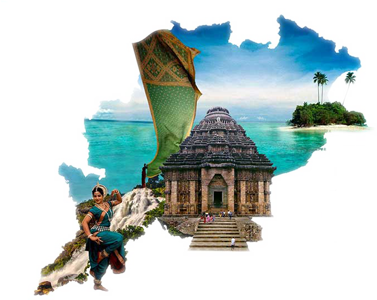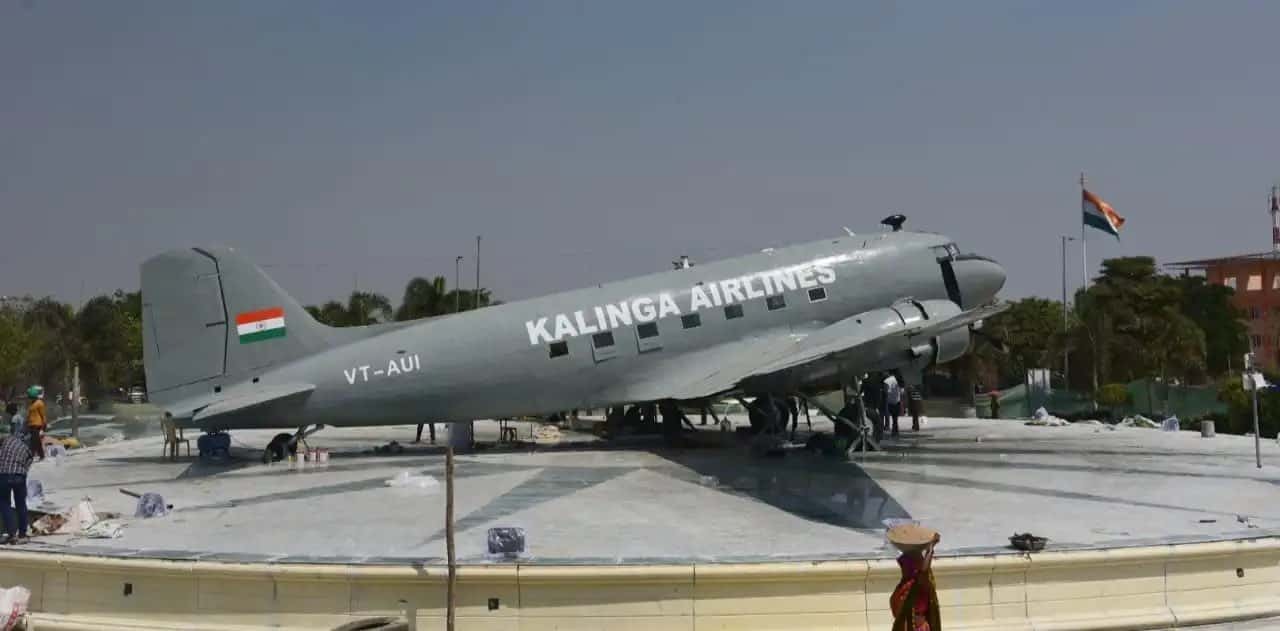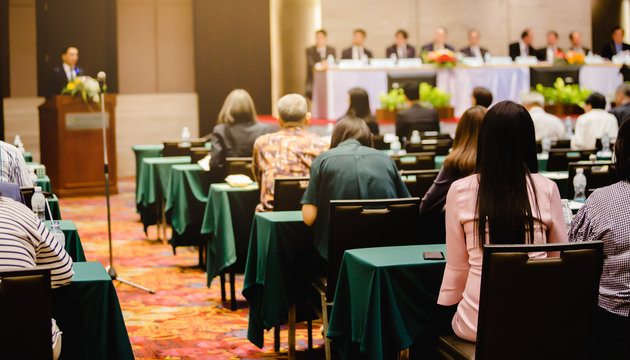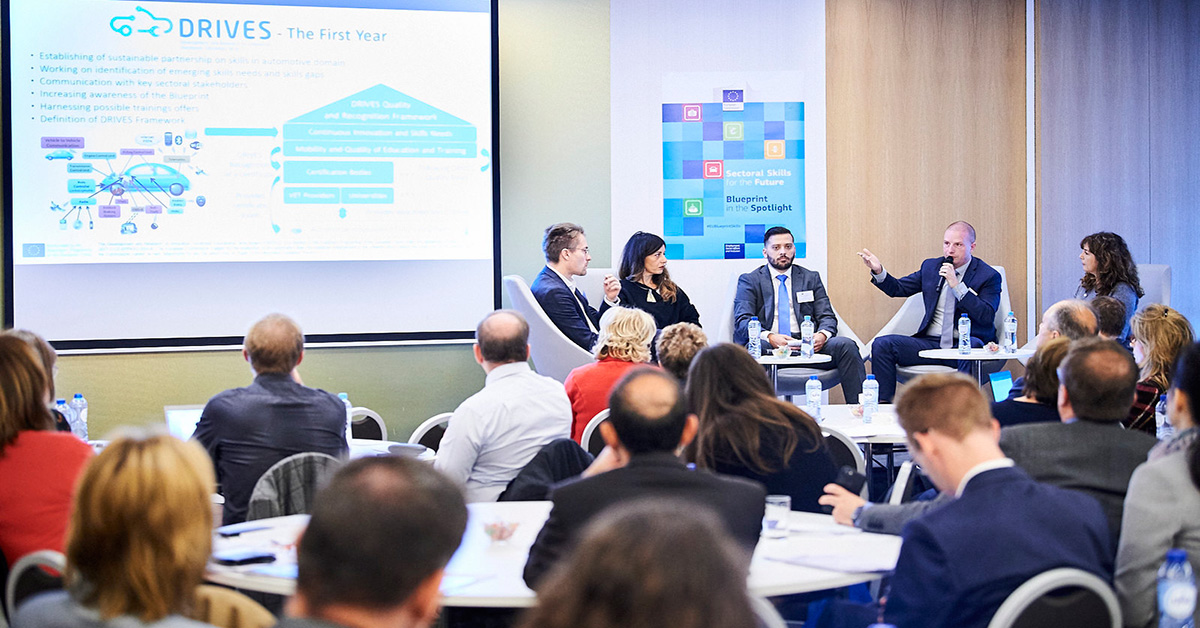NROs Possess the Potential to Form the Foundation of Odisha's Progress
Odisha is poised to exceed expectations and make a significant impact. As India sets its sights on achieving a $5 trillion economy in the next five years, Odisha, a hidden gem abundant with minerals, is gearing up to unleash a remarkable $1 trillion economy.
In my perspective, Odisha has the potential to become India's "conversion capital," where its wealth of minerals can be transformed into valuable products through manufacturing. The growth of both upstream and downstream industries is in motion. Our mines are currently up for auction, making nearly a quarter of the nation's iron and manganese ore resources available for captive users and merchant miners. By doing so, Odisha, which is projected to become India's steel capital, is positioning itself to be a major contributor to India's targeted 300 million tons of steel capacity by 2030.
The mines in Odisha hold a direct sway over India's economy and global trade, as they would account for 40% of the country's steel production. While some draw parallels between Odisha and China's mineral-rich Hebei province, amidst the grand scale of economic opportunities, I advocate for the simultaneous nurturing of human values, soft skills, and a sense of community that define Odisha's essence.
Just as minerals are ingrained in Odisha's nature, so too are congeniality and 'softness'. The challenge is to preserve both these aspects—the gentle core and the resilient core. Though difficult, it is indeed achievable. Both the central and state governments are fostering a climate where enterprises can contribute to making Odisha a global hub and a dominant coastal business centre that influences the "east geo-politics." However, this endeavour is not one that government alone can undertake.
What then is our responsibility in supporting these governmental efforts? Odisha has evolved considerably and now operates on a global scale. In this transformation, it's essential to attend to the state's softer facets. With substantial foreign direct investments (FDIs) on the horizon, our social fabric requires nourishment. The lessons from Venezuela serve as a persistent reminder. Active Non-Resident Odia (NRO) associations like OSA and OSUK, operating from thriving economies, are expected to contribute in the following areas:
Engaging the younger generation in Odisha-centric thinking
Presently, the GenY of NROs is disconnected from the narratives of the state. It is our responsibility to make Odisha an engaging topic for them. Our discussions about state development need to be more engaging, tailored to the dynamics of the younger generation, including their career aspirations.
Developing a consistent internship program, which could also benefit their education and recognition in schools and universities. After Cyclone Fani, the Forum For Integrated Development and Research (FIDR), a think tank in Odisha (www.fidrindia.org), established a Citizen School in Konark. This initiative equips young individuals with the skills, access, and beliefs they need to thrive as students and succeed as adults in the modern economy.
FIDR envisions a community where schools and families collaborate to provide students with real-world learning experiences that set them on a path to success in higher education and careers. Rishav Singh, a student at Amador Valley High School, Pleasanton, California, USA, taught Robotics and engaged with the young minds of Konark, even amidst the psychological aftermath of Cyclone Fani. He served as a young teacher for students mostly of his age who come from low-income families. These students have not been exposed to do-it-yourself (DIY) technology models to comprehend robotics in simpler terms.
With the support of the Citizen School in Konark, students across the network had the opportunity to experiment and satisfy their curiosity. These bright minds have been underrepresented in the fields of science, technology, engineering, and mathematics (STEM). The Robotics course provided them with essential exposure. Rishav's internship offered them a glimpse beyond their immediate surroundings, which will help build their resilience in a post-disaster environment. After Cyclone Fani, the destruction of schools, buildings, and houses disrupted the lives of many. The youth need creative engagement to overcome the trauma and aftermath. This program has garnered praise for being innovative, original, and impactful in similar situations across India.
It's important to note that Rishav's parents are from Odisha and are mentors at FIDR.
Active Involvement
NROs can get actively engaged in various development efforts in Odisha. They can facilitate investments not only in sectors like SMEs (plastic, textile, metals) and education but also infuse vigor and dynamism into community development. Information and communication technologies (ICTs) for development are areas where NROs and their children can play a pivotal role. They can introduce appropriate technologies and pilot them in districts or villages of their preference or origin. This support can enable the government to replicate technologies in other areas and scale up. Non-profit think tanks like FIDR can ensure the diligent implementation of programs and provide NROs with a trustworthy partner in Odisha. The reliability and integrity of civil society organizations have often been a concern for NROs, making a clean implementation environment crucial.
Shifting Paradigms
It's imperative for NROs to recognize that Odisha's development doesn't solely require financial assistance. The state needs new technologies, innovative systems, effective intervention methods, and the dissemination of good practices. It's the combination of intellect and exposure that is needed.
As the state progresses at an unprecedented pace, NROs stand to benefit not only from participating in this transformation but also from gaining invaluable experience in a developing economy. This benefit could manifest as recognition in state-building, continued contributions to the state, or sharing their successes with their roots. However, if these principles fail to resonate, then perhaps it's best for them not to expend their energies on activities in Odisha. Participation in state-building should be unconditional, and any challenges should be met with solutions rather than complaints, ridicule, or unfavourable comparisons. It's about integrating and embracing the mainstream. Special treatment should be reserved for productive, serious associations rather than superficial grandstanding.
Odisha is seeking valuable additions, not mere superficial gestures. NROs can significantly enhance the quality of education in schools and colleges, particularly in STEM fields. Numerous community and primary schools are struggling due to a lack of quality education. Additionally, classrooms need modernization through device-based smart learning and ICTs.
Embracing Local Communities
If not the state as a whole, NROs can adopt their own villages. Such adoption doesn't necessarily imply financial assistance. Instead, their involvement would signify that they are enabling villagers to access global knowledge, new information, unique career opportunities, higher education prospects, employment market trends, and self-employment ideas.
While Odisha has social security schemes in place for daily needs, the state requires impetus to elevate the intellect and vision of its youth. This, in turn, strengthens the character of both the youth and the state. Given that over half the population is below 30, and with industrialization on the rise, Odisha must develop enterprises that cater to the upward and downward business opportunities. Failure to do so could lead to other entities taking charge of these opportunities.
Strategic Networking
With the ambitious goal of reaching a $1 trillion economy, concerted efforts are essential. The Government of Odisha, through the Resident Commissioner's office in New Delhi, has established an NRO Cell. This cell facilitates connections between NROs and various sectors and stakeholders when they visit India or Odisha. Furthermore, Odia associations in Delhi can leverage their influence for the state's development. During the Prabasi Odia Conclave on January 3, 2016, two online portals (Ananya & Odisha Development, acting as online teaching platforms) were launched by the then President of India, Pranab Mukherjee, in the presence of Odisha's Chief Minister, Naveen Patnaik, and Union Minister of Petroleum and Natural Gas, Dharmendra Pradhan.
FIDR conceptualized, designed, and implemented these portals and is currently expanding their scope by creating a database of NROs, linking them to their respective themes or areas of interest. This initiative aims to simplify collaborations and facilitate strategic connections.
Through collaboration with Odia associations in different countries, FIDR can extend this initiative further, yielding concrete results for the state. Communities in Odisha require life skills more than hard skills. While numerous government schemes cover hard skills, primary education and early childcare demand equal attention, if not more. The state's character hinges on how we nurture children in village schools and prevent dropouts. Simple technologies, smart teaching aids, and consistent interventions are imperative. NROs have made substantial contributions to their state, and it's anticipated that with advancing technologies, flexible travel options, and continuous networking, their involvement will intensify in the years to come.
The emerging leadership within OSA, OSUK, and other associations should integrate with the broader concept of a 'global Odisha'. This quiet yet unstoppable momentum is brimming and all-encompassing. Join the journey of growth! This is a once-in-a-lifetime opportunity for both state-building and nation-building.
Source: The Article written by Charudutta Panigrahi https://odishabytes.com/nros-can-be-the-backbone-of-odishas-development/






